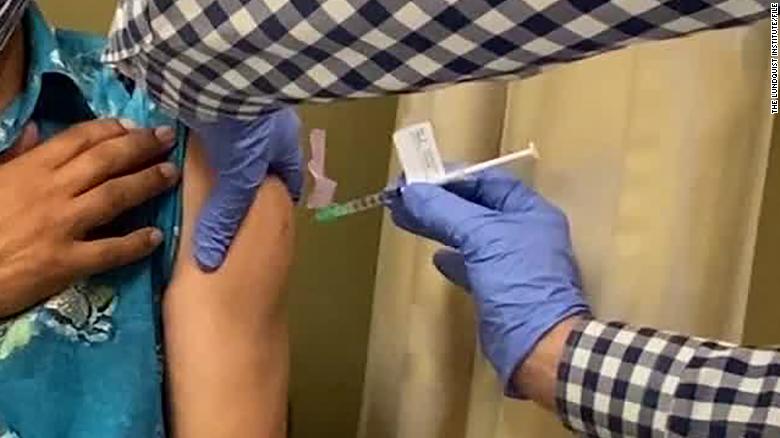4 keys to the AstraZeneca vaccine 2:00
(CNN) -
Vaccine experts, including those who serve on advisory committees for the U.S. Food and Drug Administration (FDA) and the Centers for Disease Control and Prevention (CDC), have questions about data released Monday by AstraZeneca on its covid-19 vaccine.
In a press release on Monday, the pharmaceutical giant announced that its vaccine has an average effectiveness of 70%.
However, the company did not disclose the data that led it to that conclusion.
"If you don't know this, it's hard to know the significance of their findings," said Dr. Paul Offit, a member of the FDA's Advisory Committee on Vaccines and Related Biologics, which will review covid-19 vaccines before they come out. to the market.
When two other drug companies, Pfizer and Moderna, published their efficacy results earlier this month, they did include the data that led to their results.
AstraZeneca tests
In its press release Monday, AstraZeneca presented an analysis of 23,000 participants in its phase 3 trial.
advertising
Some participants received the covid-19 vaccine, while others received a different type of vaccine or placebo injections: saline injections that do nothing.
An independent board of experts then determined to what extent the group that received the covid-19 vaccine was protected against the disease.
In its press release, AstraZeneca said that a total of 131 study participants developed COVID-19, but did not say how many of those people had received the COVID-19 vaccine and how many had not.
AstraZeneca is conducting the vaccine trials in collaboration with the University of Oxford in the UK.
Spokespersons for the company and the university did not respond to questions from CNN on Monday.
Vaccine safety
The experts also had questions about the safety of the AstraZeneca vaccine.
The AstraZeneca trial was suspended twice because government regulators were concerned about two study participants who became seriously ill.
Regulators subsequently allowed the trial to resume.
“I would like to know the data specifically on those serious adverse reactions that caused the trial to stop,” said Dr. William Schaffner, a member of the CDC's Advisory Committee on Immunization Practices, who will also review vaccines before they are allowed. in the market.
In its press release, AstraZeneca stated that "no serious vaccine-related safety events have been confirmed" and that the vaccine was "well tolerated."
Why two different regimes?
The experts had another question about the AstraZeneca trial.
Among the study participants who received the covid-19 vaccine, there were two different dose regimens.
In one regimen, 2,741 participants received a half dose of the vaccine and then a full dose at least one month later.
In the second group, 8,895 participants received a full dose followed by another full dose at least one month later.
The group that received the half dose initially was 90% protected against COVID-19 and the group that received two full doses was only 62% protected.
One of the leading Oxford researchers, Dr Adrian Hill, said that "it would probably take weeks and months" to understand why the lower dose produced much better results.
"We don't fully understand that, but there are a number of ideas about how it might work and we're exploring them," Hill told CNN's Becky Anderson on Monday.
Trials in progress
Trials of the vaccine are still ongoing in several countries and will eventually include fewer than 60,000 study participants by the end of the year, according to the AstraZeneca press release.
Dr. Saad Omer, a vaccine specialist at Yale School of Medicine, noted that the group with a 90% efficacy rate was relatively small (only 2,741 study participants), and those results may not hold when most people receive this regimen.
He noted a lack of clarity on various aspects of the AstraZeneca data.
"I hate criticizing my fellow academics, or anyone else, but spreading information like this is like asking us to try to read tobacco," Omer said.
CNN Health's Sierra Jenkins contributed to this story.
AstraZenecaCoronavirus Vaccine

